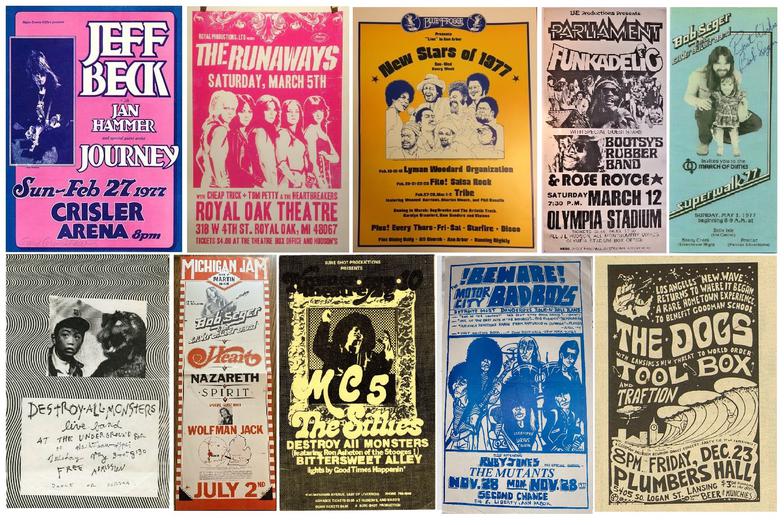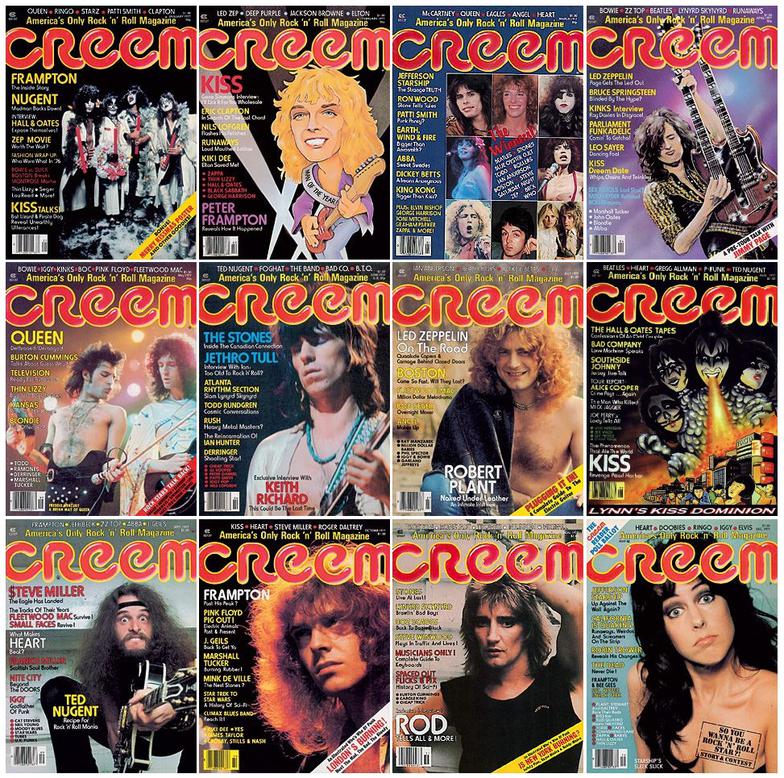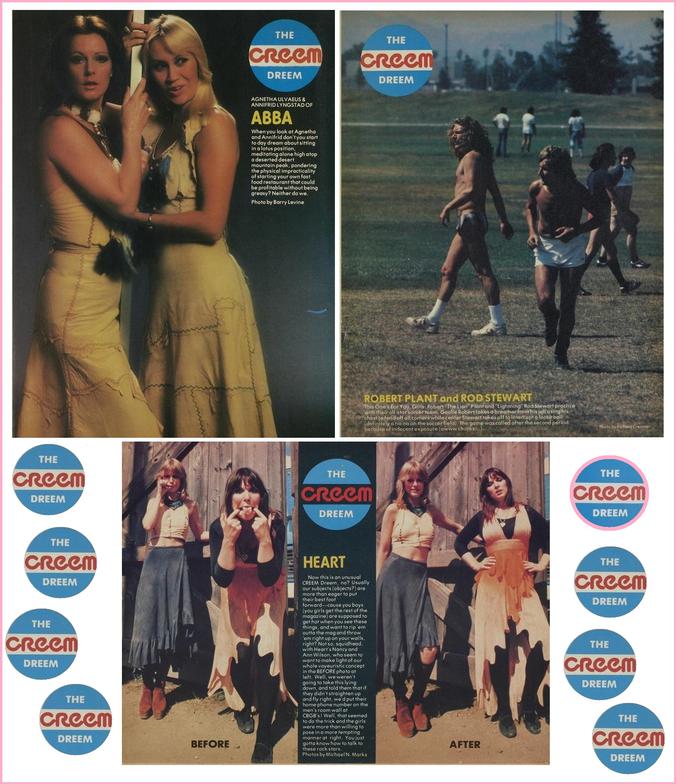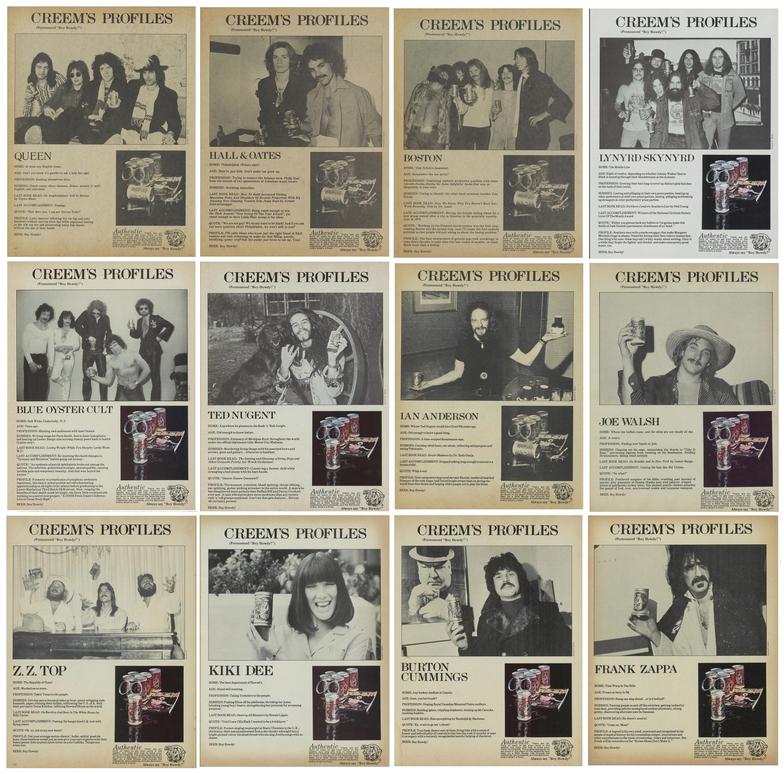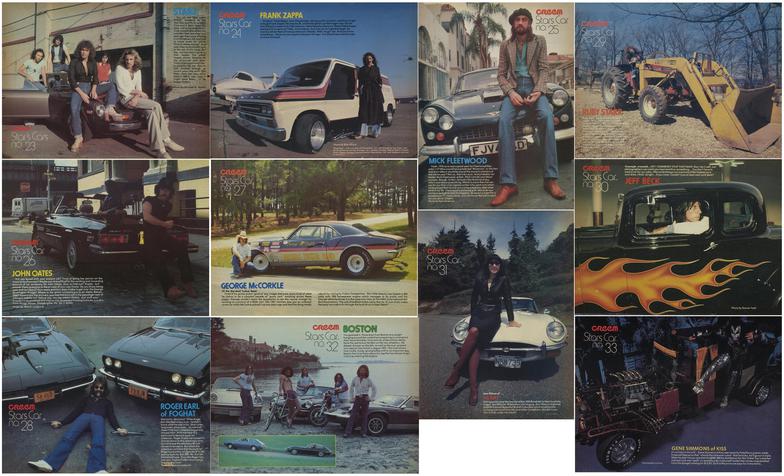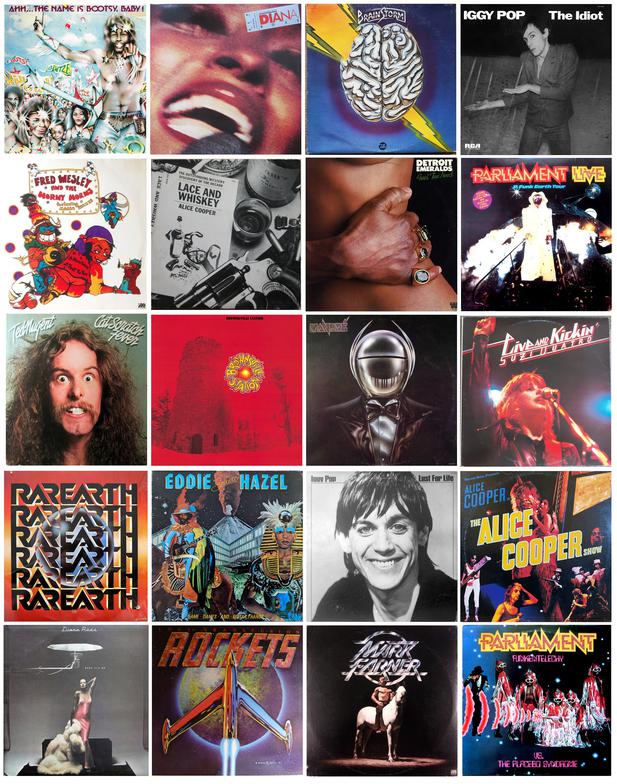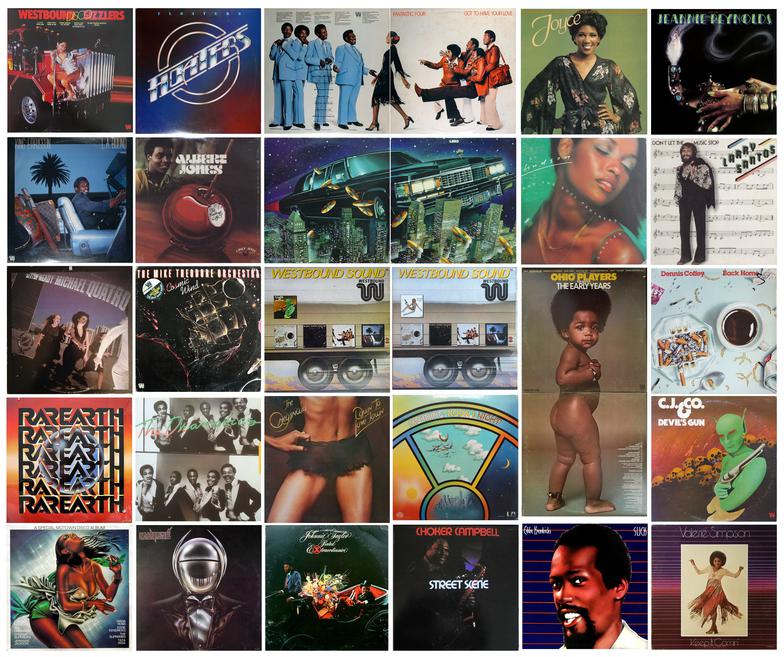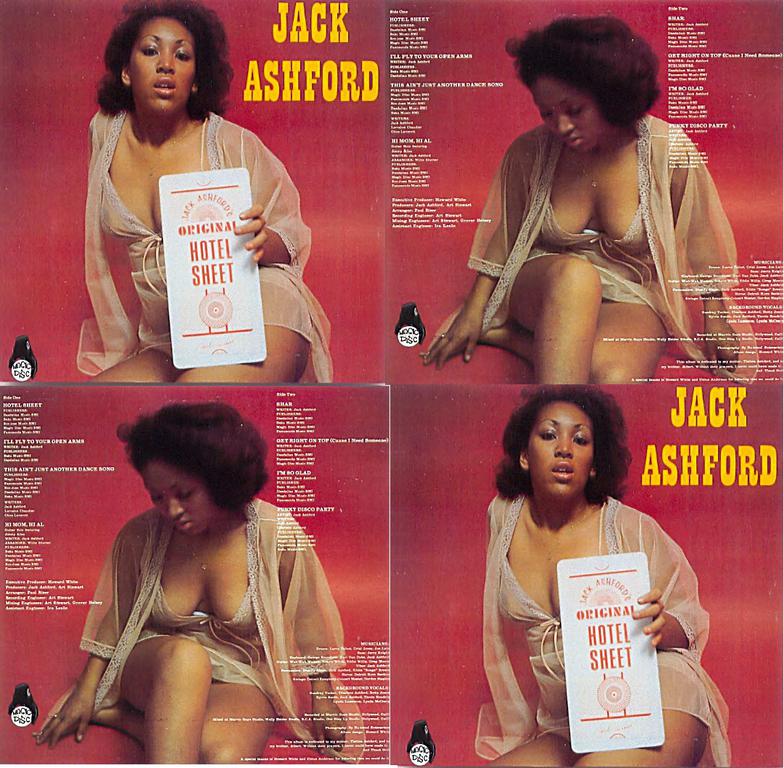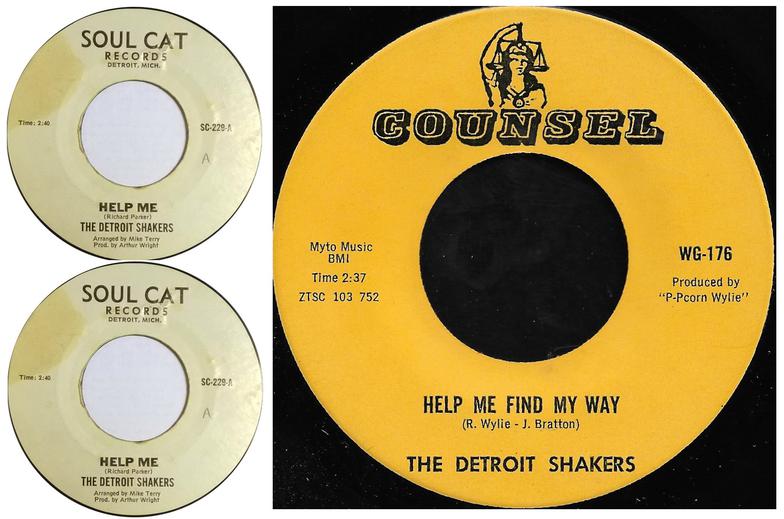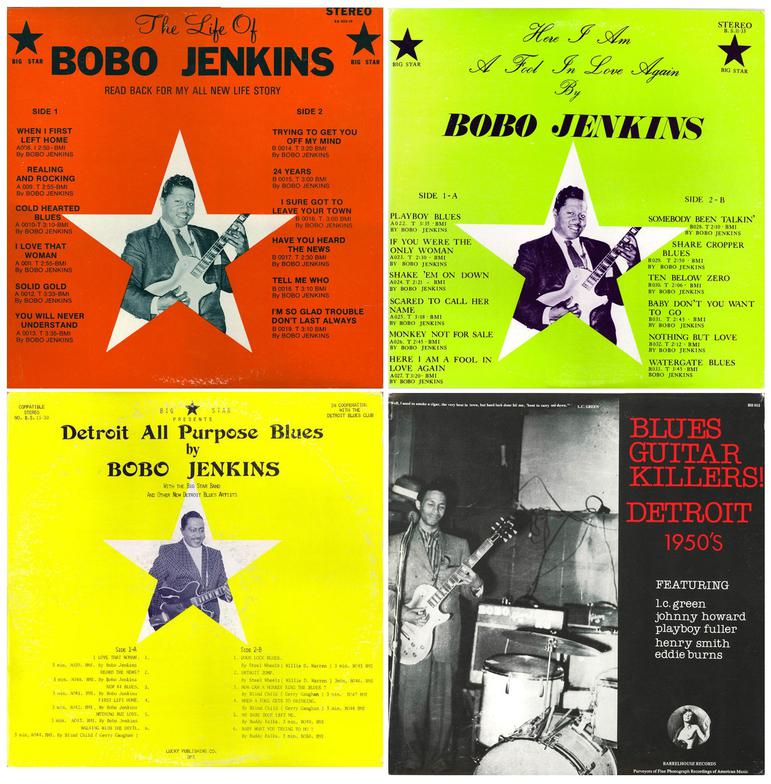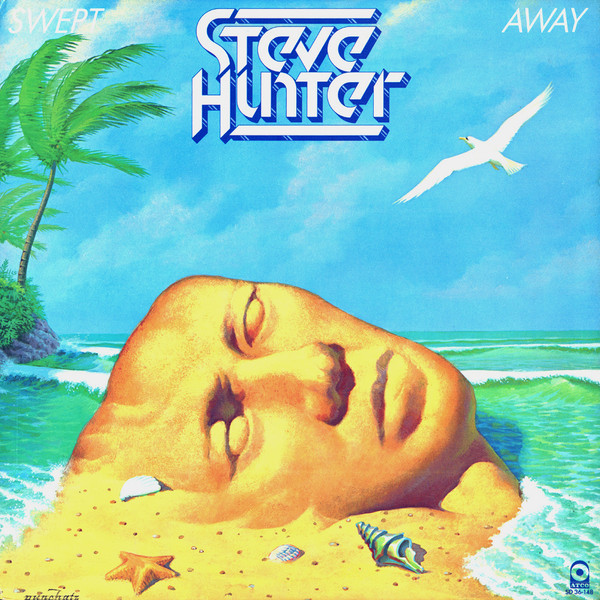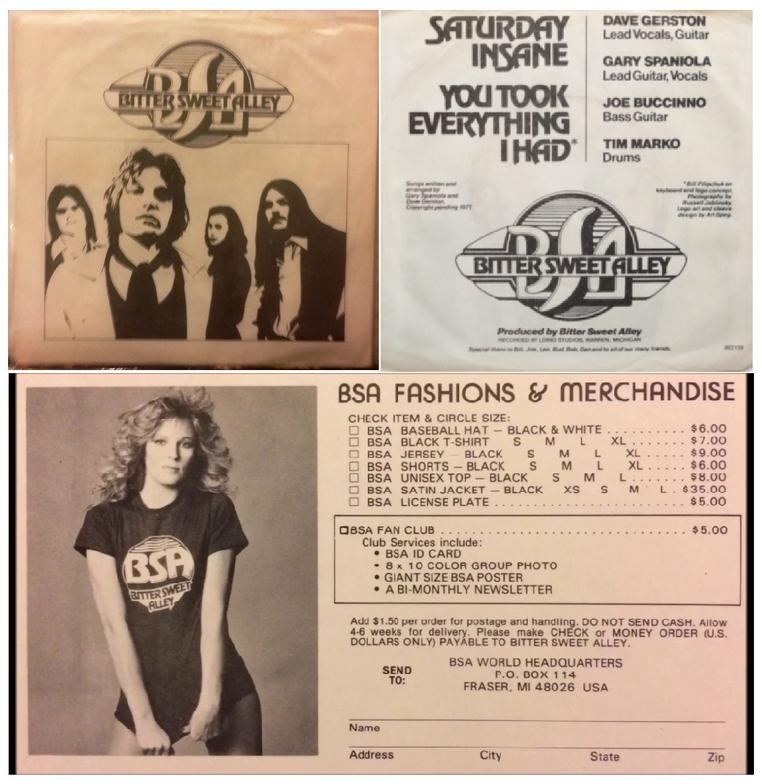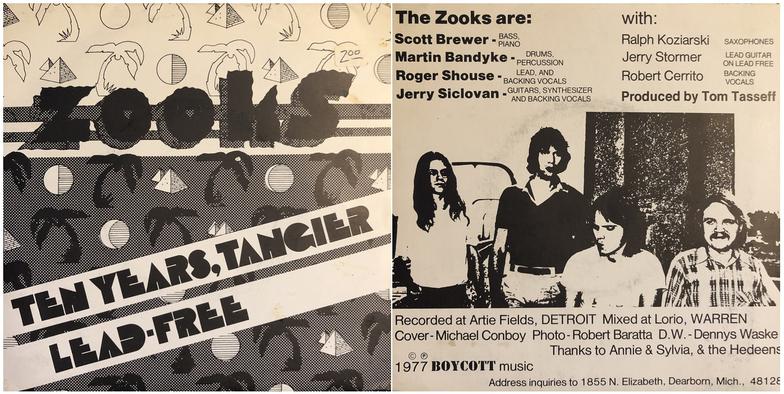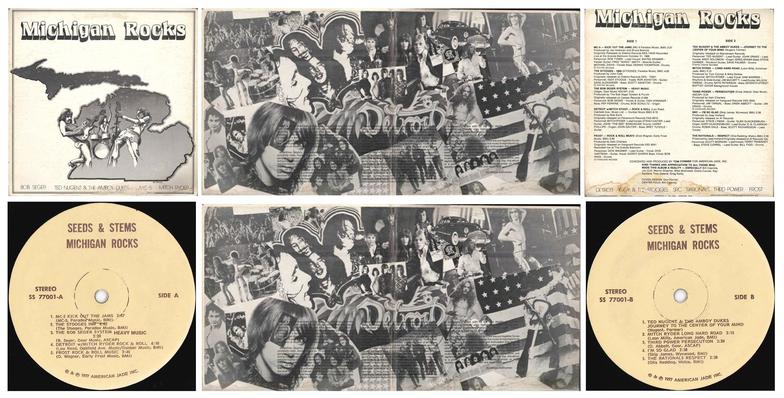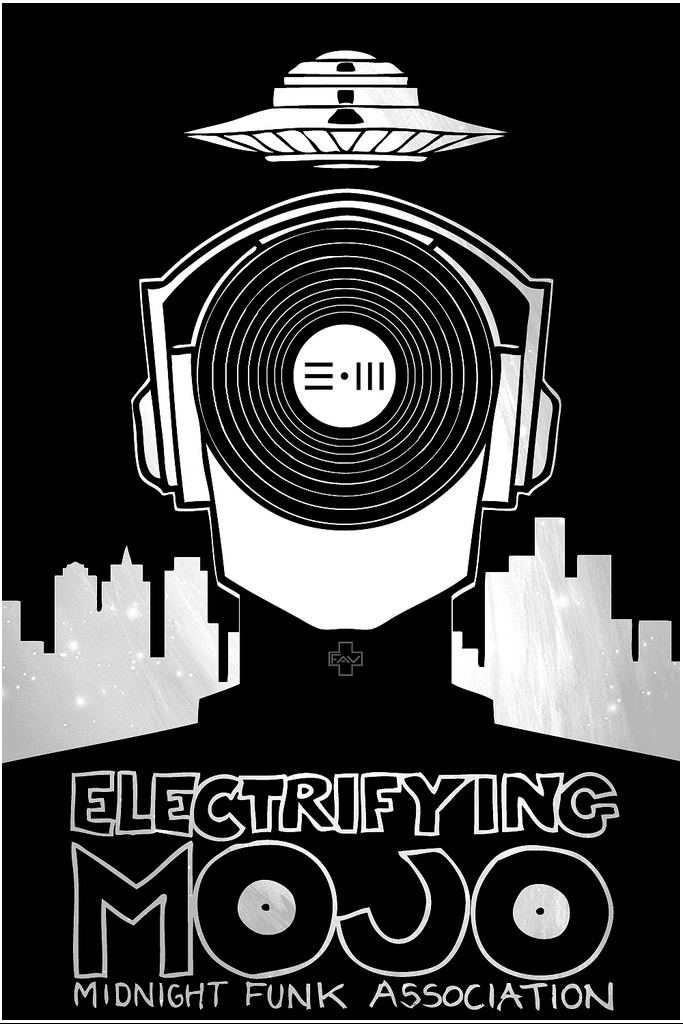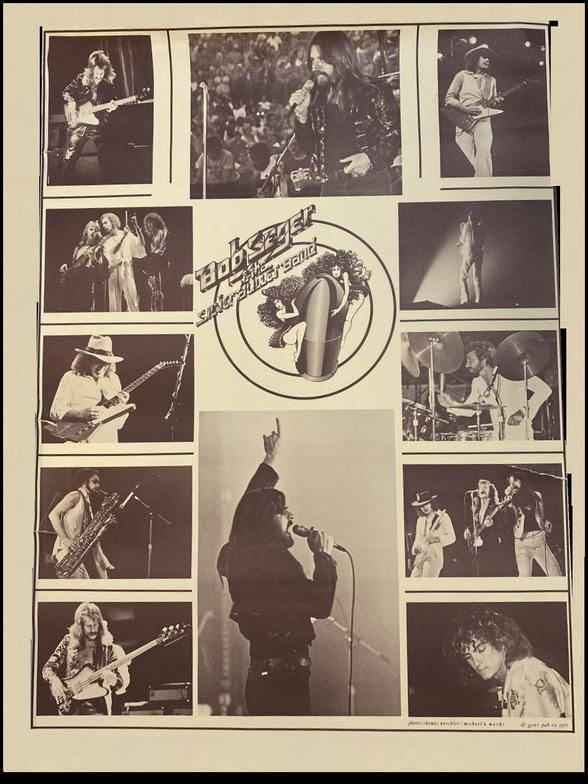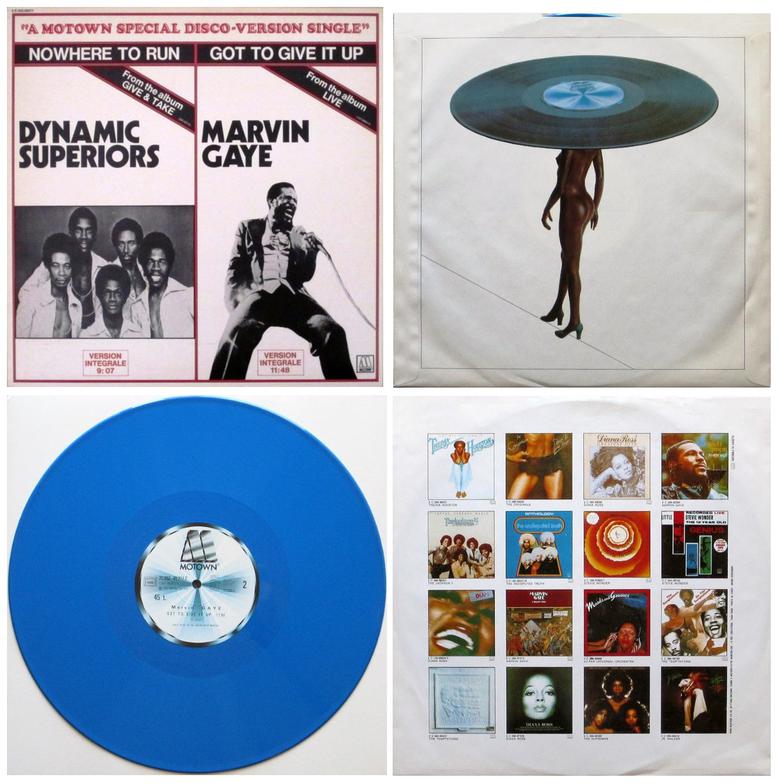Splatt Gallery
Double click here to add text.
Splatt Gallery's History of Michigan Concert Posters
Volume Thirteen - 1977 - Page Thirteen
And so we come to the end of another year, and as we like to do, here are our ten favorite Michigan concert posters for 1977.
Jeff Beck – Crisler Arena, Ann Arbor – 2/27/77 (cancelled) – artist: Gary Grimshaw
Runaways, Cheap Trick, Tom Petty – Royal Oak – 3/5/77 – artist: unknown
New Stars of 1977 – Blue Frogge, Ann Arbor – February/March - artist: unknown
Parliament-Funkadelic – Olympia, Detroit – 3/12/77 – artist: unknown
Bob Seger Superwalk ’77 – 5/1/77 – artist: unknown
Destroy All Monsters – Underground, Ypsilanti – 5/3/77 – artist: Destroy All Monsters
Michigan Jam – Martin, Michigan - 7/2/77 – artist: unknown
MC5, Sillies, Destroy All Monsters – Kramer Theatre, Detroit – 8/10/77 – artist: unknown
Motor City Bad Boys – Second Chance, Ann Arbor – 11/28/77 – artist: Nanzi
The Dogs – Goodman Ballroom Reunion, Lansing – 12/23/77 – artist: “G”
Comparatively, 1977 was the poorest year, so far, for concert posters, with a total of only (84) by our count. It does appear, however, that the steady decline since the peak year of 1969 has hit its bottom and the poster count will begin to rise again in the coming years.
The leading poster artist for 1977 was Freddie Brooks with his posters for Sonic’s Rendezvous Band whom he also managed. The second most prolific artist for 1977 was Jeff Yerkey in East Lansing.
The 1977 crop of CREEM magazines. Ted Nugent, on the cover of the September issue, was the only Michigan artist featured on the cover of the year’s twelve issues.
**********************************************************
CREEM magazine’s “CREEM Dreem” feature was sporadic in 1977, appearing in only three issues, with Heart in March, Abba in September, and Robert Plant with Rod Stewart in December.
The CREEM Profiles feature ran in all twelve regular issues in 1977. There was only one Michigan-related artist, Ted Nugent. He was joined by Queen, Hall & Oates, Boston, Lynyrd Skynyrd, Blue Oyster Cult, Ian Anderson, Joe Walsh, ZZ Top, Kiki Dee, Burton Cummings, and Frank Zappa.
The CREEM magazine feature "Star's Cars" ran in eleven of the twelve issues in 1977, missing in July, With no Michigan artists, the selections were: #23 - Starz-Datsun 280-Z, #24 - Frank Zappa - Van and Lear Jet, #25 - Mick Fleetwood - unknown car, #26 - John Oates - Alpha Romeo, #27 - George McCorkle (Marshall Tucker Band) - custom 1967 Camaro, #28 - Roger Earl (Foghat) - Corvette and Jensen Interceptor, #29 - Ruby Starr - Freeman Bush Hog 4000, #30 - Jeff Beck - unknown car, #31 - Ann Wilson (Heart) - XKE Roadster, #32 - Boston - Jaguar XKE's, #33 - Gene Simmons - custom hearse.
Our annual round-up of major albums by Michigan-related artists for 1977 includes two studio albums by Iggy Pop, including his debut solo album, a live album plus a studio album by both Alice Cooper and Diana Ross, rock albums by Ted Nugent, Brownsville Station, and Rare Earth, debut albums by the Rockets, Brainstorm, Mandre, and Mark Farner, a live album by Suzi Quatro, and no less than five albums by George Clinton’s ever expanding P-Funk family.
The Detroit Emeralds released an album based around an extended remix of their 1972 classic “Feel the Need”. More soul and R&B albums of the year are described below.
A collection of Detroit Soul albums released in 1977, five years post-Motown. We’ve covered a number of them as we went through the year, the Floaters, Dennis Coffey, C.J. & Company, Rare Earth, and Mandre.
Armen Boladian’s Westbound Records was now the largest soul label in town with around 100 releases in 1977. In addition to the aforementioned albums by Dennis Coffey and C.J. & Company, Westbound releases shown above include the Fantastic Four, the Mike Theodore Orchestra, King Errisson, and compilation albums of the Ohio Players’ early years, Disco Sizzlers, and Westbound Sound. The label also had huge hit by releasing an extended version of the Detroit Emeralds’ 1972 classic “Feel The Need”.
Invictus Records, established in 1968 by Holland-Dozier-Holland after they left Motown, folded in 1977, one of their final releases was the debut album by Eloise Laws.
Newer artists on the rise included Al Hudson & the Soul Partners, Joyce Hurley, and Jeannie Reynolds The group Morning, Noon & Night released their debut, and only, album that included the delightful “Bite Your Granny”, which proved highly popular in UK nightclubs at the time.
Established artists such as the Dramatics, the Originals, Johnnie Taylor, Eddie Kendricks, and Michael Quatro added new albums to their discographies, Valerie Simpson released a compilation album of her earlier songs. Long-time band leader Choker Campbell released his only solo album and also produced singer Albert Jones’ lone solo album.
Warner Bros. Records issued their 43rd release in their Loss Leaders series, called “Limo” which included tracks by Ted Nugent And The Amboy Dukes, and Funkadelic guitarist Eddie Hazel.
Morning, Noon & Night - Bite Your Granny (1977)
https://www.youtube.com/watch?v=KL69C5HdyUc
Larry Santos - Don't Let The Music Stop (1977)
https://www.youtube.com/watch?v=lIrrwgT8QTs
Eloise Laws – Ain't It Good Feeling Good (1977)
https://www.youtube.com/watch?v=UddqCfqcydQ
Eddie Kendricks- Diamond Girl (1977)
https://www.youtube.com/watch?v=aSloA8BBzdc
Al Hudson & The Soul Partners - If You Feel Like Dancing (1977)
https://www.youtube.com/watch?v=xlRp2u5z00c
Albert Jones - You Stole My Love (1977)
https://www.youtube.com/watch?v=PhNWSIW436g
King Errisson - Well, Have A Nice Day (1977)
https://www.youtube.com/watch?v=C8tdgmy8RtM
The Originals - Hurry Up And Wait (1977)
https://www.youtube.com/watch?v=C58r8GCYNbc
Funk Brother Jack Ashford’s percussion work was a key element in the Motown sound, he was known as "that cat that played tambourine at Motown" and he was a indeed virtuoso on the instrument, but in addition, he also played vibraphone, marimba, maracas, cabasa, bells, chimes, bell tree, finger cymbals, kazoo, triangle, wood block, handclaps, knee slaps, foot stomps, and his own invention, the "hotel sheet", a light piece of metal that’s snapped back and forth to create cool wibbly, wobbly waves of sound, almost like a Moog synthesizer.
His work is particularly notable on "War" by Edwin Starr, "Nowhere to Run" by Martha & the Vandellas, "You Can't Hurry Love" by The Supremes, "I Heard It Through the Grapevine" by Marvin Gaye, "Don't Leave Me This Way" by Thelma Houston, and "Ooo Baby Baby" by The Miracles.
In 1977, he released a solo album, called “Hotel Sheet” which features his creation on the title track. The album also includes the Northern Soul classic “I’ll Fly To Your Open Arms”, arranged by the legendary Paul Riser.
Jack Ashford – Hotel Sheet (1977)
https://www.youtube.com/watch?v=I3O9xABSEW8
Jack Ashford - 'I’ll Fly To Your Open Arms (1977)
https://www.youtube.com/watch?v=K5YMmUylKs0
A single released in the UK in 1977 on the Soul Cat Records label combined our two favorite side-tracks – Northern Soul and Midwest Garage Rock. Released as “Help Me” by the Detroit Shakers it was a flat-out bootleg paste-over of a 1966 album track “Lonely Man” by the Cleveland, Ohio band The Outsiders.
The Soul Cat release falsely credited Detroit Soul luminaries Richard Parker and Mike Terry, a release on Counsel Records falsely credited Richard "Popcorn" Wylie.
The Outsiders are best known for their early 1966 hit single "Time Won't Let Me". The song was composed by the band's guitarist Tom King along with Chet Kelley, the same pair wrote “Lonely Man”. Iggy Pop will later cover “Time Won’t Let Me” on his 1981 album “Party”.
One more step down the rabbit hole, the Outsiders re-emerged in Los Angeles, California in the early 1970’s, changing the name of the band to Climax, with their one-hit-wonder, guilty-pleasure, “Precious and Few”.
Detroit Shakers (Outsiders) – Help Me Find My Way (Lonely Man) (1977)
https://www.youtube.com/watch?v=by1VTvtd9_A
Outsiders – Time Won’t Let Me (1966)
https://www.youtube.com/watch?v=veUneZqiMDw
Climax – Precious and Few (1971)
https://www.youtube.com/watch?v=I95xCjQe6Jg
Bobo Jenkins released his third, and final, album on his own Big Star Records label in 1977. The “yellow album”, titled “Detroit All Purpose Blues” followed 1972’s “red album”, “The Life of Bobo Jenkins” and 1974’s “green album”, “Here I Am A Fool In Love Again”.
Also released in 1977 was the compilation album “Blues Guitar Killers! Detroit 1950's” on the Barrelhouse Records label. The complete “yellow album” and one track from “Blues Guitar Killers! Detroit 1950's” are linked below.
Bobo Jenkins’ complete illustrated discography can be found here:
https://www.wirz.de/music/jenkins.htm
Bobo Jenkins - Detroit All Purpose Blues (album) (1977)
https://www.youtube.com/watch?v=fecXgSEymYI
Eddie Burns - Sunnyland Blues (from Blues Guitar Killers! Detroit 1950's) (1977)
https://www.youtube.com/watch?v=f8AK-nzEbHQ
Guitarist Steve Hunter released a solo album in 1977, with heavy involvement by producer Bob Ezrin, who also contributed keyboards, percussion, and vocals. Long-time bandmate Prakash John played bass, cover art was by science fiction and fantasy artist Don Punchatz.
From the album review by Allmusic:
“The legendary guitarist for Mitch Ryder, Alice Cooper, Lou Reed, and session man for Aerosmith, among others, creates a monumental solo disc with Kiss/Pink Floyd wizard Bob Ezrin and co-producer Brian Christian. Opening with a deluxe instrumental version of the Byrds' "Eight Miles High," for fans of '70s rock, this collection contains many revelations.
"Eldorado Street" is a variation on Steve Hunter's magnificent composition simply titled "Intro" that was the opening number at Lou Reed shows starting on September 1, 1973, when the "Rock & Roll Animal Band" took stage at Lenox, MA, for the first time. The intro mutated during the tour and may have even inspired John Cougar Mellancamp's song "I Need a Lover." Reed reportedly had a band called L.A. & the Eldorados, so perhaps the title is a tip of the hat to Hunter's former lead singer.
“An absolute gem here is a totally brilliant instrumental version of the Beach Boys' classic "Sail on Sailor." This take is innovative, creative, with background vocals coming out of nowhere. It is a treat and seems to set up the "theme side" of the Swept Away album -- the magic of water.
“A textbook for musicians who should be studying the work of this great session man, and a treasure chest for fans of Reed, Cooper, Ryder, and '70s guitar sounds.”
Steve Hunter - Swept Away (album) (1977)
https://www.youtube.com/watch?v=SYFFPAFMKnM&list=PLA2-nXsHvm3IjQ7lwegEF1MTsXdjDxg7M
Picture sleeve for the first single by Bitter Sweet Alley, released on their own BSA label in 1977, “Saturday Insane” backed with “You Took Everything I Had”. Their next recording would come four years later.
Bitter Sweet Alley - Saturday Insane (1977)
https://www.youtube.com/watch?v=v5wOwLT1Yqk
And finally, to wrap up our review of Michigan records in 1977, we have the debut single by the Zooks, released on their Boycott Records label.
Zooks - Ten Years, Tangier (1977)
https://www.youtube.com/watch?v=QclrBhHbIpU
Zooks - Lead Free (1977)
https://www.youtube.com/watch?v=Qtc8WE5BVM8
“Michigan Rocks”, the first compilation album of Michigan rock music was released on the Seeds & Stems record label in 1977. The front cover illustration was by Don Perrish, and the centerfold collage was by Billy Csernits, keyboard player with Mitch Ryder’s band. Ryder was a partner in the Seeds & Stems label, which would continue to release his albums under the imprint.
The track listing was:
MC-5 - Kick Out The Jams
The Stooges - 1969
The Bob Seger System - Heavy Music
Detroit (2) w/ Mitch Ryder - Rock & Roll
Frost - Rock & Roll Music
Ted Nugent & The Amboy Dukes - Journey To The Center Of Your Mind
Mitch Ryder - Long Hard Road
Third Power - Persecution
SRC - I'm So Glad
The Rationals - Respect
The End - Volume Thirteen - 1977
Back to Main History Page - HERE
Charles Johnson began broadcasting as the “Electrifying Mojo” on WGPR radio in Detroit, Michigan in 1977. His eclectic formats and ground-breaking shows will remain influential in the Detroit radio market for over the next thirty years.
Born in Little Rock, Arkansas, Johnson attended the University of Michigan after serving in the Air Force. He began broadcasting on the University radio station and then on Ann Arbor station WAAM before moving to WGPR in Detroit in 1977.
A 1977 tour poster for Bob Seger & the Silver Bullet Band. The group performed more than (70) shows over the course of the year.
One final Detroit soul record from 1977 is a Motown split single with Marvin Gaye and the Dynamic Superiors. Marvin Gaye’s “Got To Give It Up” is the nearly twelve minute version from his “Live At The London Palladium” album, and the Dynamic Superiors turn in an interesting take on the Martha Reeves & the Vandellas’ classic “Nowhere To Run”.
The Dynamic Superiors – Nowhere To Run (1977)
https://www.youtube.com/watch?v=IcyxwORmqss
Marvin Gaye – Got To Give It Up (live) (1977)
https://www.youtube.com/watch?v=qhFNY9zW2F4


